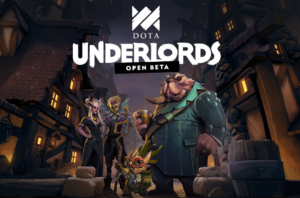There are strategy games, there are complex strategy games, and then there are the grand strategy titles from Paradox Interactive. The games from the Swedish developer and publisher have always been aimed at a rather niche audience, for whom control over their own realm cannot be complex enough. The first tentative foray out of this niche came eight years ago with Crusader Kings 2, which sold relatively well with more than a million copies sold and has a loyal fan base to this day. With Crusader Kings 3, the successor has now appeared, which should build on this success with the usual gameplay and modern improvements.
Crusader Kings 3 has brought home very high marks from the international press: from the point of view of critics, in short, the title of Paradox Interactive is already a great success.Elements that have obviously also been appreciated by the other magazines, judging by the enthusiastic reception they have reserved for the game, with a great abundance of 10 and 9.
Writing a review of Crusader Kings 3 is not easy, because on the one hand it offers such a complex and articulated game system, equipped as it is with hundreds of intertwining functions, that it is basically impossible to tell in detail, unless of not wanting to write some kind of official guide; on the other hand, the gameplay is paradoxically so “narrative” that you easily risk losing sight of the more mechanical side of the whole experience.
Gameplay
Crusader Kings 3 presents itself as a rather classic grand strategy in real time. At the start of the game, you need to choose a ruler from the many available and try to make his dynasty flourish. To do this, it is clearly necessary to take care of his domain by managing relations with any vassals and feudal lords, and perhaps expanding the boundaries of his possessions through wars of conquest, palace intrigues or diplomatic actions.
Our character, however, is not immortal: once he has died, for more or less natural causes, we will move on to check his heir. The game of Paradox therefore puts us at the head of a dynasty to be made to flourish and prosper over the course of the centuries throughout the Middle Ages and up to the first half of the 1400s.
In the classic Ironman game mode, a dynasty with no heirs is doomed to extinction. If this happens, the inevitable game over is incurred on the death of the last member of one’s family.
Crusader Kings 3 thus puts the legacy of the house first, prompting the player to cultivate the lineage of his avatar while trying to balance the delicate political, social and military balances of his domain. We are in the presence of an extremely complex but not difficult title.
The parameters to keep under control are so many, it is true, but it is enough to carefully study the different mechanics to enter the loop and never leave it. Moreover, the developers have prepared a rather exhaustive tutorial that manages to explain both the basics of the game, and the more advanced dynamics and innovations introduced in this third chapter.
United We Stand
Among the novelties we cannot avoid mentioning also some unpublished diplomatic actions, including the possibility of influencing other characters and improving their relations with the ruler. They range from classic adulation to seduction, even coming to forge strong friendships. The latter is a possibility that can be unlocked by investing experience points in the diplomatic branch of the character growth screen.
You read that right: in Crusader Kings 3 we have the possibility to choose a specialization for our character and, over time, make him gain experience in that particular category (diplomacy, military, administration, intrigue, culture), improving his skills and unlocking new bonuses and specific traits. Be careful, however, because the specialization can indeed be changed during the life of our avatar, but many years must pass between one modification and another.
On the artificial intelligence side, then, it is worth noting the huge steps forward made in this field by the development team. During military operations, allies are able to act consistently with a fair degree of independence, where enemies often try to conquer the most strategically relevant objectives, or aim to push the player to fight in unfavorable conditions, for example on land in which whose part is disadvantaged.
Even in diplomatic operations or in espionage actions, the AI behaves in a very competitive manner, making claims on the territories or organizing dangerous intrigues against our ruler and his court, forcing us to always remain on the alert and never let our guard down . Unfortunately, in the face of the many contents already present at launch, it is impossible not to notice some missing features that will most likely be introduced later to the sound of additional paid content (some already announced, moreover), as per Paradox Interactive tradition.
Grand Strategy – RPG?
First things first: Crusader Kings 3 is basically the same game as its predecessor, for better and for worse. The event extends over large parts of the Middle Ages from either 867 or 1066 to the year 1453. Unlike in other global strategy games, however, I do not directly take over a nation or culture, but rather determine the fate of a ruling dynasty.
If this loses control of all of its territories or if the noble family dies out without a sound, it’s game over. On the one hand, I take care of the expansion of the empire and the conquest of new territories, on the other hand I deal with topics such as family planning and the character development of the ruler and his relatives.
Every character in the game has stats in martial arts, diplomacy, administration, intrigue, and education. These are determined by personality traits such as greed, diligence, bravery and many others, which in turn develop from birth primarily through chance events and the associated decisions. Based on the values, the empire can be led to success in one way or another . With a capable steward, the income gushes, a brilliant warlord increases the power of the army, and an intriguing spinner gets his opponents out of the way in a completely undiplomatic way.
This is also where the assassination system comes into play, for which I can, in turn, use leverage obtained through targeted espionage or helpful random events. I catch the Duke of Burgundy red-handed with a lady who doesn’t look like his wife at all? Well, I’ll just blackmail him into supporting me in the murder of the Kaiser, our common liege lord. I can also bribe members of the victim’s court to join the murder plans. Unless the victim is unpopular anyway, then the co-conspirators flock here quite voluntarily.
Goal In life of the ruler
The focus of the game on the ruler as an individual as well as his dynasty was also the focus of some of the great innovations in Crusader Kings 3. So you now choose a so-called path of life for each character as soon as he ascends the throne. To do this, you first decide on diplomacy, warfare, administration, intrigue or education and then within the chosen area again from one of three different focuses. These each give different bonuses within their category.
In the course of his life, a ruler now collects experience points for his way of life and earns so-called preferred points again and again. These are then invested in three skill trees belonging to lifestyle. This enables you to unlock a wide variety of passive bonuses that affect the corresponding field of rule.
Diplomats, for example, increase the opinion of others and the increase in prestige, while administrators, for example, increase their income or receive bonuses for building buildings. At the end of each of these skill trees there is also a suitable new trait for your ruler. On the basis of his training, you can therefore pursue a specialized type of governance with each ruler. That brings variety and more individuality between the individual characters.
WAR
The military side also deserves a few words . As in Crusader Kings 3, it is not the focus of the game: you can form armies by hiring different types of units, but the clashes occur automatically and are determined by the overall strength of our army, which we cannot give direct orders in combat. In some way we are faced with the simpler system of Crusader Kings 3, almost secondary to the others: to declare war we must have a casus belli, useful for not suddenly deteriorating relations with other kingdoms (declaring war without reason is not frowned upon by anyone).
The casus belli can be simply claiming rights on a given territory for dynastic issues, or having been attacked, or having a very strong lever against someone. For example, a deeply religious leader can attack the territory of a leader with a profligate lifestyle by leveraging this (perhaps after sending some courtesans purposely to fabricate evidence against the opponent).
Once in the war it is possible to raise all the troops of a territory to form an army and send it where needed. If you have allies, you can call them to our defense, increasing the scale of the conflict. Crusader Kings 3 wars usually take place across multiple kingdoms, especially in the advanced phases of the game, where the political relations built previously assume a strictly practical utility in terms of deployable forces on the field. Of course the larger our army, the more it costs to maintain it. But this is really the basis. In general, even the military side has precise implications on the whole politics of our kingdom.
Graphics
Graphically Crusader Kings 3 is a definite step up from its predecessor. Paradox did not perform any miracles and, given the genre, it was not even required, but some news are certainly welcome. Meanwhile, now all the characters have their 3D portrait and are equipped with small animations, which make the image more dynamic. They also age with the passage of time, showing their evolution in a plastic way. Sure, the character models aren’t great, but being thousands it was pretty clear that Paradox would have to compromise.
However the function of the 3D portraits is not merely aesthetic, but like all the other elements of the game it serves to give the player information. For example, the expression of the character we are talking with allows us to understand by eye his attitude towards us. It is a small thing, in hindsight, given that there are numbers to give us the pulse of the situation, but one of those that helps to immerse ourselves more in the gameplay.
Staying on the technical side, the map in crusader kings 3 also deserves a few words. It shows more information than Crusader Kings 2, but is also more enjoyable to look at by virtue of the greater detail, be it the best representation of biomes or 3D cities with their key buildings in plain sight. Perhaps it is slightly less legible than that of the predecessor,but it must be said that after a few hours of play you get used to the new icons and you don’t notice them anymore. After all, the greatest amount of information on the screen is worth the candle, as they say.
Bottomline
Crusader Kings 3 is a highly intelligent sequel to what is regarded as one of the best strategists ever. Paradox has worked extensively on the new features, in particular those concerning the dynasties, without however going to dismantle those elements that make the predecessor so exciting and different from the other strategic ones.
The result is a deep and multifaceted title, with a complex and articulated game system, but justified by the goal Crusader Kings 3 aims to achieve: to simulate a kingdom in all its aspects, not only economic and military, but also human. In this sense Crusader Kings 3 not only succeeds in its intent, but amazes in its being able to create consistent game situations that hold up on the short and long distance, in which the choices made by the player always appear significant, even if in front of them. to apparently disastrous results.
You can find more of such articles at MYESPORTSGLOBE
Follow our Social media handles for more exclusive eSports News Instagram Twitter Facebook







